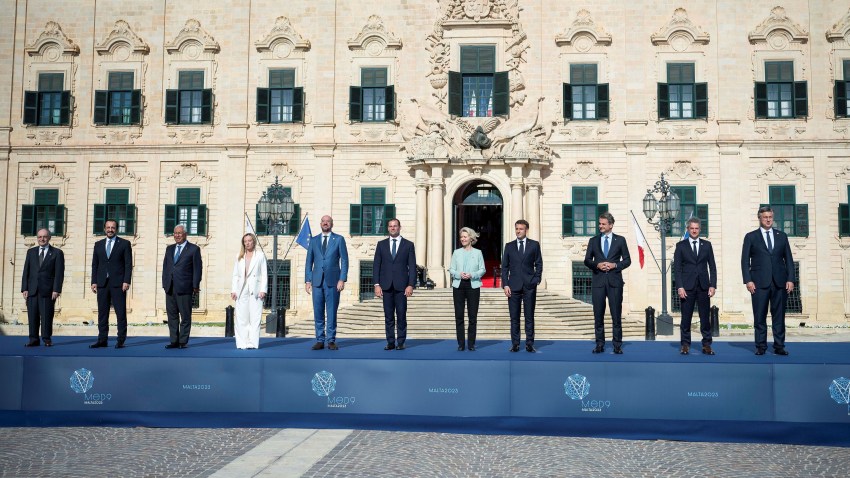As Israeli troops advance deeper into Gaza in retaliation for the Hamas attack on Oct. 7, the war’s impact has continued to widen. In European states, domestic polarization has risen over whether or not Israel should be pressured into a cease-fire due to the horrific civilian death count in Gaza. But that has led to the conflict being debated as a foreign policy crisis with little direct connection to the internal workings of the European Union. Yet as the war continues to escalate in ways that affect every state in the Eastern Mediterranean, efforts by Brussels to keep the horror currently engulfing Gaza and Israel at arm’s length from the EU are unlikely to remain sustainable for long.
Brussels’ strategy toward the Eastern Mediterranean has long been most notable for its confusion over how to organize its relations with the states in the region. Though Turkey’s EU membership candidacy is effectively suspended, even if accession negotiations remain formally underway, it still enjoys substantial access to the EU’s Single Market through the Turkey-EU Customs Union. So, too, does Israel through an Association and Free Trade agreement. By contrast, the EU’s approach toward Egypt, Lebanon and the Palestinian Authority has largely remained limited to development aid and economic investment that avoids any lowering of visa and security barriers.
This tendency to treat the countries in the Eastern Mediterranean as a geopolitical periphery reflects the legacies of both the imperial rivalries of the 19th-century and the collapse of empires following World War I, which led to the emergence of impoverished states fighting over contested borders. Ever since, tensions between Greece and Turkey have remained acute over the control of islands in the Aegean Sea and other legacies of the wars they fought in the early 1920s. Cyprus has been another source of confrontation, though Athens and Ankara’s mutual NATO membership has acted as a check on wider escalation.

